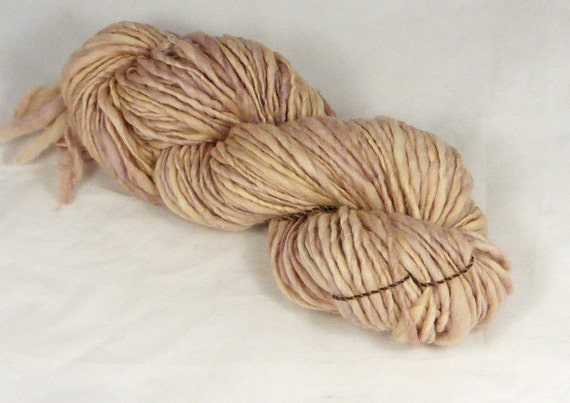| goo.gl/55yVEa |
Borage. Borage (/ˈbʌrᵻdʒ/,[1] Borago officinalis), also known as a starflower, is an annual herb in the flowering plant family Boraginaceae. It is native to the Mediterranean region and has naturalized in many other locales.[2] It grows satisfactorily in gardens in the UK climate, remaining in the garden from year to year by self-seeding. The leaves are edible and the plant is grown in gardens for that purpose in some parts of Europe. The plant is also commercially cultivated for borage seed oil extracted from its seeds. https://en.wikipedia.org/wiki/Borage
Borage (A Modern Herbal). The Common Borage is a hardy annual plant coming originally from Aleppo but now naturalized in most parts of Europe and frequently found in this country, though mostly only on rubbish heaps and near dwellings, and may be regarded as a garden escape. It has long been grown freely in kitchen gardens, both for its uses as a herb and for the sake of its flowers, which yield excellent honey. http://www.botanical.com/botanical/mgmh/b/borage66.html
Borage (pfaf.org). Borago officinalis is a ANNUAL growing to 0.6 m (2ft) by 0.3 m (1ft in) at a medium rate. It is hardy to zone (UK) 7 and is not frost tender. It is in flower from Jun to October, and the seeds ripen from Jul to October. The flowers are hermaphrodite (have both male and female organs) and are pollinated by Bees.It is noted for attracting wildlife. http://www.pfaf.org/user/Plant.aspx?LatinName=Borago+officinalis
Borage seed oil. Borage seed oil is the plant rich in the gamma-linolenic acid (26%-38%) which is used as dietary or food supplement. Other than seed oil it contains a lot of fatty acids such as linoleic acid (35%-38%), oleic acid (16%-20%), palmitic acid (10%-11%), stearic acid (3.5%-4.5%), eicosenoic acid (3.5%-5.5%) and erucic acid (1.5%-3.5%). It is used for the treatment of various diseases such as multiple sclerosis, diabetes, heart diseases, arthritis and eczema. http://www.sciencedirect.com/science/article/pii/S1995764514601991
Borage wine and vinegar. Steep dried borage and rosemary in white wine for two weeks: "To drinketh wine imbued with the floures of borage is to increase his countenance and bringeth courage to the weak." You can also make a beautiful vinegar from white wine vinegar and borage flowers (add some of the leaves for extra flavor), and the flowers make a blue dye that turns pink with the addition of acid. http://www.alchemy-works.com/borago_officinalis.html
Borage vs. alkanet. Alkanet – alkanna tinctoria or dyer's alkanet is a very attractive purple colourant that is found in the roots of plants belonging to the borage family. http://maiwahandprints.blogspot.hu/2013/02/natural-dyes-alkanet.html
 |
| Skein dyed with borage root |
Historical Uses. In folk tradition, borage has long been believed to dispel melancholy and ease grief and sadness. According to Dioscorides, borage can 'cheer the heart and lift the depressed spirits', while Gerard wrote that its flowers were used in salads 'to exhilarate and make the minde glad' while cooks used them 'for the comfort of the heart, to drive away sorrow, and increase the joy of the minde'. The Greeks and Romans believed that the herb was a source of courage and comfort, and there are references to the flowers being embroidered into medieval tapestries and the colours of jousting knights. The blooms were even floated in drinks consumed by Crusaders before battle. The American settlers carried borage seed with them on their long journeys across the Atlantic Ocean. http://www.seedaholic.com/borago-officinalis-alba-white-borage.html
White borage. Finally, in August, months after the first of the season’s borage had come and gone, a few new plants came up in a part of the garden that had been borage free. These plants were different. Their leaves were brighter green, the foliage denser, tighter, and more compacted. I pried the developing buds open looking for clues. WHITE! Now I know. White borage seem to come up later than its blue cousin. http://yougrowgirl.com/white-borage/
Borage in Spain. (Mostly white borage used.) This vegetable originated in the Mediterranean basin. In Spain it is cultivated along the Ebro river valley in the regions of Navarre and Aragón, in both of which borage is a popular dish. Specially famous is the Cadrete borage from Zaragoza. Borage from Navarre is very tender and moist with a mild, sweetish flavor. Borage can be found fresh in season in Spanish markets and frozen all year round. It is also sold as a vegetable preserve. http://www.foodswinesfromspain.com/spanishfoodwine/global/products-recipes/products/4446330.html
Borraja con patatatas. Es y resulta muy curioso comprobar que una verdura tan popularizada en La Rioja, como la borraja, sea casi desconocida en la mayor parte de otras regiones. Por lo tanto, es muy difícil encontrar referencias en los recetarios de cocina al uso. http://blog.todalarioja.com/recetas-de-la-rioja-borraja-con-patatas/
 |
| goo.gl/pwmWYF |

Nincsenek megjegyzések:
Megjegyzés küldése